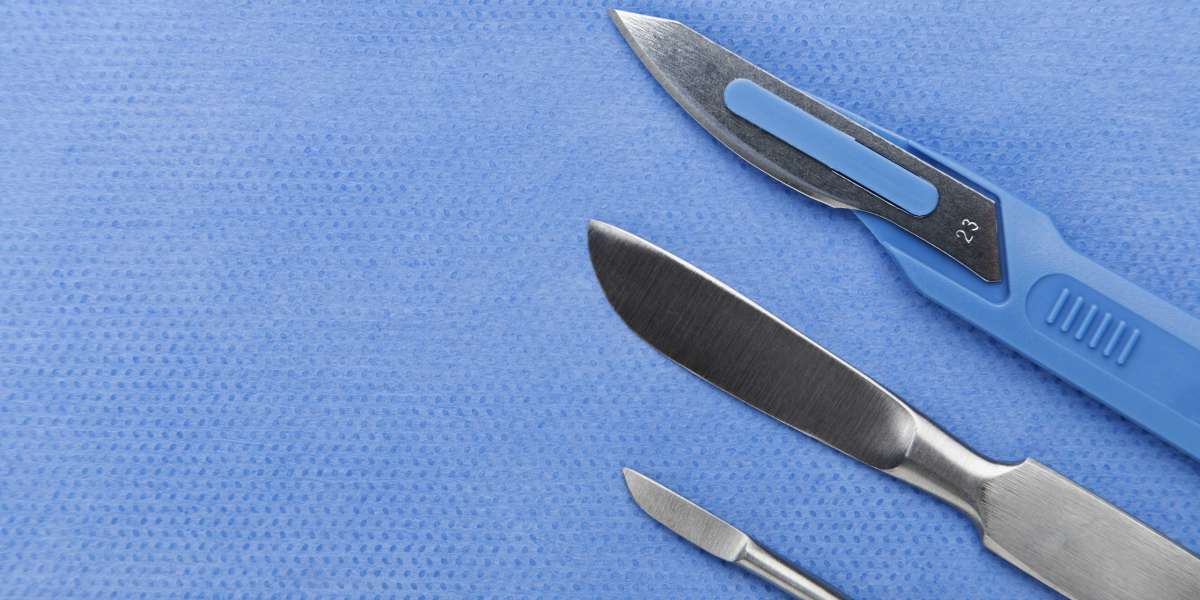In the world of surgery, precision is paramount. One small misstep can drastically affect the outcome of a procedure. That’s why every medical professional relies on one indispensable tool: the surgical scalpel knife. This seemingly simple instrument holds the power to make clean incisions, minimise tissue damage, and ensure optimal healing. From minor outpatient procedures to complex surgeries, the scalpel remains central to safe, effective care.
At Livingstone International, we understand the importance of reliability in surgical tools. That’s why we offer a wide range of premium surgical scalpel knives tailored to meet the exacting demands of medical professionals.
What Is a Surgical Scalpel Knife?
A surgical scalpel is a small, extremely sharp instrument used for the precise cutting of skin and tissue. It consists of two primary parts:
Blade: The cutting edge, made from stainless steel or carbon steel.
Handle: The grip, often ergonomically designed and reusable, or disposable for sterile applications.
The scalpel’s fine edge allows for clean, controlled cuts, which are essential for minimising trauma to surrounding tissue and promoting quicker healing.
Types of Surgical Scalpel Knives
Different surgical procedures require different blade shapes and sizes. The most common types include:
#10 Blade: Curved edge, commonly used for large incisions in skin and muscle.
#11 Blade: Pointed and triangular, ideal for stab incisions and delicate procedures.
#15 Blade: Small, curved edge for short, precise cuts.
Disposable Scalpels: Pre-assembled and sterile, used in outpatient or single-use settings.
Reusable Handles: Made from stainless steel and paired with replaceable blades.
Livingstone International supplies all standard types and sizes, ensuring compatibility with a wide range of surgical tasks.
Medical Applications of Surgical Scalpel Knives
The surgical scalpel knife is utilised across almost every medical speciality, including:
1. General Surgery
Used for skin incisions, tissue separation, and cutting through muscle layers.
2. Dermatology
Essential for removing moles, cysts, and performing skin biopsies.
3. Orthopaedics
Used during operations involving bones, tendons, and ligaments.
4. Ophthalmology
Microsurgical scalpels are used in delicate eye surgeries.
5. Dental Surgery
Used to make precise incisions in oral tissues and gums.
6. Autopsy Forensics
Used for precision dissection and tissue removal.
No matter the procedure, a scalpel ensures that incisions are as clean and efficient as possible.
Benefits of Using a High-Quality Surgical Scalpel Knife
Choosing the right scalpel has significant implications for both the medical professional and the patient. Here are some key benefits of using a high-quality surgical scalpel knife from Livingstone International:
Sterility: Individually packaged to eliminate contamination risks.
Precision: Sharp edges allow for minimal tissue damage and reduced scarring.
Consistency: Manufactured under strict quality standards.
Comfort: Ergonomic design minimises fatigue during long procedures.
Cost-Effective Options: Available in both reusable and disposable models.
Safety Guidelines When Using Surgical Scalpels
The surgical scalpel knife is one of the sharpest instruments in a clinical setting. Therefore, safety must always come first. Here are some best practices:
Always Use with a Handle: Never attempt to use just the blade.
Engage the Safety Cap Immediately After Use.
Dispose of Blades in Sharps Containers: Never throw used blades in general waste.
Cut Away from Your Body: Reduce the risk of accidental injuries.
Use Blade Removers or Needle Holders when changing blades.
At Livingstone International, we also supply blade removers, blade holders, and sharps containers to ensure safe handling.
How to Choose the Right Surgical Scalpel Knife
When selecting the right surgical scalpel knife, consider the following:
Procedure Type: Minor or major surgery? Tissue type?
Sterility Requirements: Disposable vs. reusable.
Blade Type: Choose based on the required incision.
Handle Compatibility: Ensure it fits your preferred grip style.
Quantity Needed: Single or bulk purchase for hospitals and clinics.
Livingstone International offers expert advice and bulk pricing options to help you make the most informed choice.
Why Choose Livingstone International?
As a trusted Australian provider of medical and surgical supplies, Livingstone International delivers unmatched value through:
Wide Range of Surgical Scalpel Knives in multiple sizes and formats.
Strict Quality Assurance: TGA-compliant products meet high clinical standards.
Fast Shipping Bulk Discounts: Ideal for hospitals, clinics, and dental practices.
Customer Support: Friendly and professional service team ready to assist.
Sustainable Practices: Focused on eco-conscious packaging and responsible sourcing.
When you choose Livingstone, you're choosing surgical excellence.
Conclusion:
The surgical scalpel knife is far more than a simple blade—it’s the foundation of precision, safety, and efficiency in every surgical procedure. Whether you're performing a complex operation or a routine biopsy, this tool is your most trusted companion.
At Livingstone International, we’re proud to supply Australian healthcare professionals with surgical scalpel knives that meet the highest standards of safety, performance, and affordability. Explore our full range today and equip your practice with tools designed for success.







